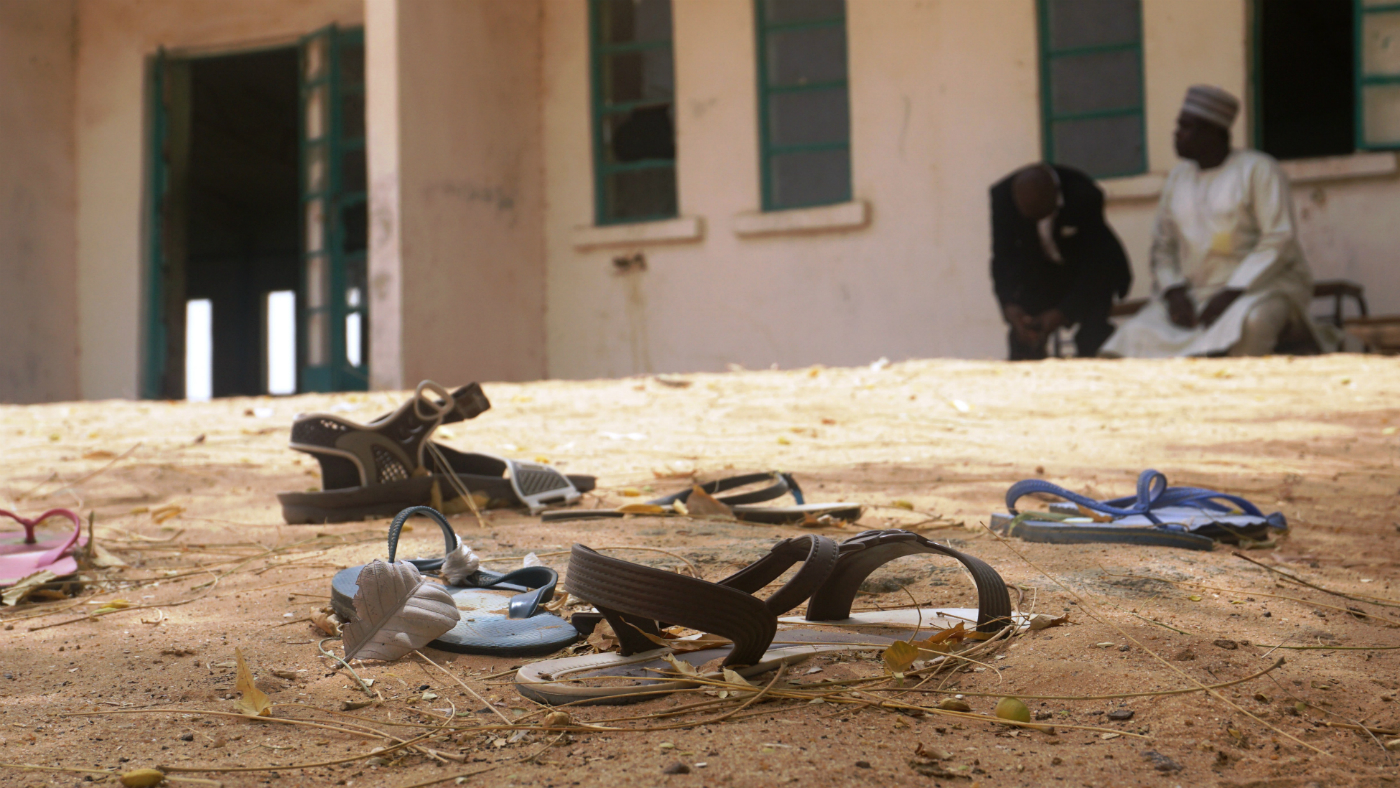Dapchi kidnapping: Nigerian schoolgirls returned by Boko Haram
More than 90 of the abducted girls released by militant group after negotiations with government

A free daily email with the biggest news stories of the day – and the best features from TheWeek.com
You are now subscribed
Your newsletter sign-up was successful
Boko Haram militants have released 91 of the 110 Nigerian schoolgirls they abducted in February, authorities said today.
Witnesses in Dapchi, in the northeastern state of Yobe, said the fighters had returned the students taken from the town’s Government Girls Science and Technical College “out of pity”, telling parents “don’t you ever put your daughters in school again”, Sky News reports. The fate of the remaining girls is unclear, although five are believed to have died.
Boko Haram translates as “Western education is forbidden” in the local Hausa language.
The Week
Escape your echo chamber. Get the facts behind the news, plus analysis from multiple perspectives.

Sign up for The Week's Free Newsletters
From our morning news briefing to a weekly Good News Newsletter, get the best of The Week delivered directly to your inbox.
From our morning news briefing to a weekly Good News Newsletter, get the best of The Week delivered directly to your inbox.
Bashir Manzo, who heads a parents’ support group in Dapchi, said: “The girls have been brought back. They were brought in nine vehicles and dropped outside the school at about 8am. I have the list of the missing girls with me, so I am now heading to the school to take a roll call of the returned girls to determine if any of them is still missing.
“These girls were not accompanied by any security personnel. Their abductors brought them, dropped them outside the school and left, without talking to anyone.
“We will get to know more details from the girls about their predicament while in captivity.”
The Dapchi kidnapping, on 19 February, “brought back painful memories of a similar abduction in Chibok in April 2014, when more than 200 girls were taken”, says The Daily Telegraph.
A free daily email with the biggest news stories of the day – and the best features from TheWeek.com
The Nigerian government “is widely reported to have paid £2m in ransom cash for the release last year of 82 of the 276 kidnapped Chibok schoolgirls”, the newspaper adds.
Nigeria’s President Muhammadu Buhari said last week that the government had “chosen negotiation”, rather than use military force, to secure the return of the Dapchi girls.
“We are trying to be careful. It is better to get our daughters back alive,” he said.
Yan St-Pierre, a counterterrorism specialist with the Modern Security Consulting Group in Berlin, told South African news website IOL that the Dapchi girls’ release was not without precedent.
Earlier this year, a number of Boko Haram hostages, including university lecturers, were freed.
But according to St-Pierre, the latest release was “casual enough to raise a lot of questions, especially about the payment”.
“If they did pay, the Nigerian government likely paid a premium to accelerate the release in order to avoid another Chibok,” he added.
-
 5 blacked out cartoons about the Epstein file redactions
5 blacked out cartoons about the Epstein file redactionsCartoons Artists take on hidden identities, a censored presidential seal, and more
-
 How Democrats are turning DOJ lemons into partisan lemonade
How Democrats are turning DOJ lemons into partisan lemonadeTODAY’S BIG QUESTION As the Trump administration continues to try — and fail — at indicting its political enemies, Democratic lawmakers have begun seizing the moment for themselves
-
 ICE’s new targets post-Minnesota retreat
ICE’s new targets post-Minnesota retreatIn the Spotlight Several cities are reportedly on ICE’s list for immigration crackdowns
-
 Epstein files topple law CEO, roil UK government
Epstein files topple law CEO, roil UK governmentSpeed Read Peter Mandelson, Britain’s former ambassador to the US, is caught up in the scandal
-
 Iran and US prepare to meet after skirmishes
Iran and US prepare to meet after skirmishesSpeed Read The incident comes amid heightened tensions in the Middle East
-
 Israel retrieves final hostage’s body from Gaza
Israel retrieves final hostage’s body from GazaSpeed Read The 24-year-old police officer was killed during the initial Hamas attack
-
 China’s Xi targets top general in growing purge
China’s Xi targets top general in growing purgeSpeed Read Zhang Youxia is being investigated over ‘grave violations’ of the law
-
 Panama and Canada are negotiating over a crucial copper mine
Panama and Canada are negotiating over a crucial copper mineIn the Spotlight Panama is set to make a final decision on the mine this summer
-
 Why Greenland’s natural resources are nearly impossible to mine
Why Greenland’s natural resources are nearly impossible to mineThe Explainer The country’s natural landscape makes the task extremely difficult
-
 Iran cuts internet as protests escalate
Iran cuts internet as protests escalateSpeed Reada Government buildings across the country have been set on fire
-
 US nabs ‘shadow’ tanker claimed by Russia
US nabs ‘shadow’ tanker claimed by RussiaSpeed Read The ship was one of two vessels seized by the US military